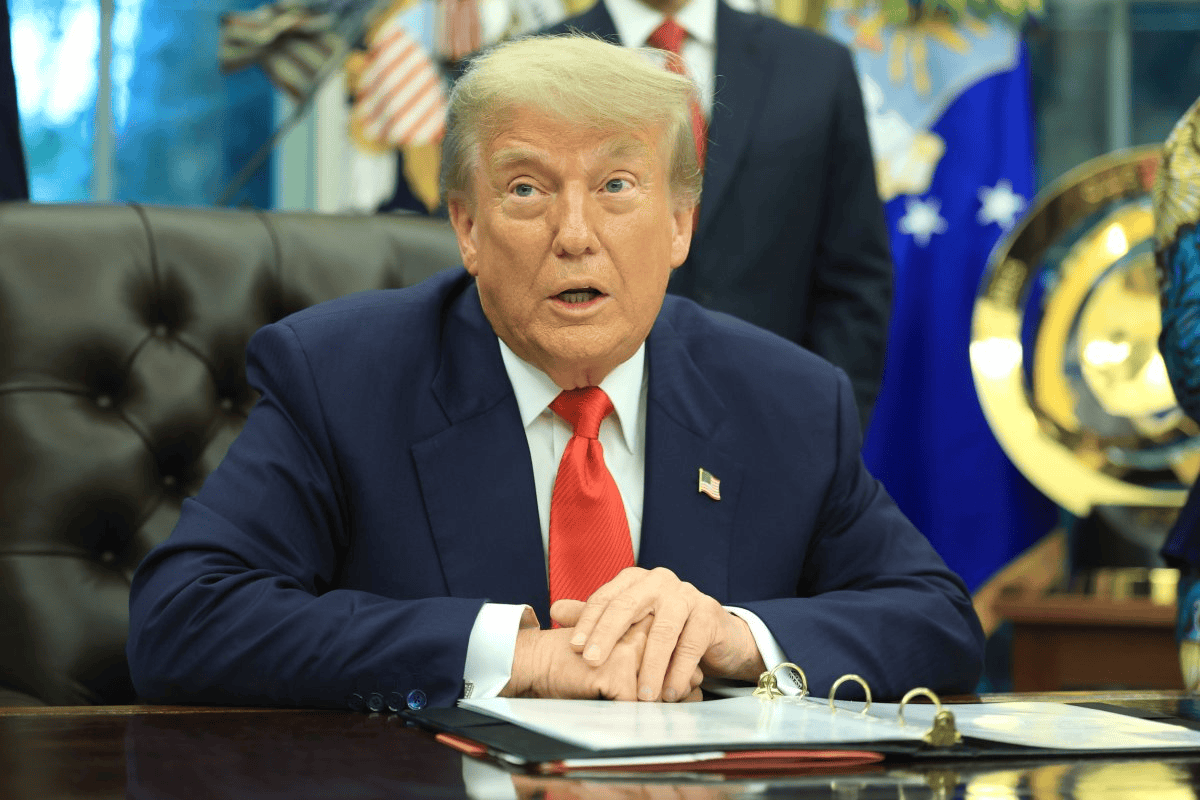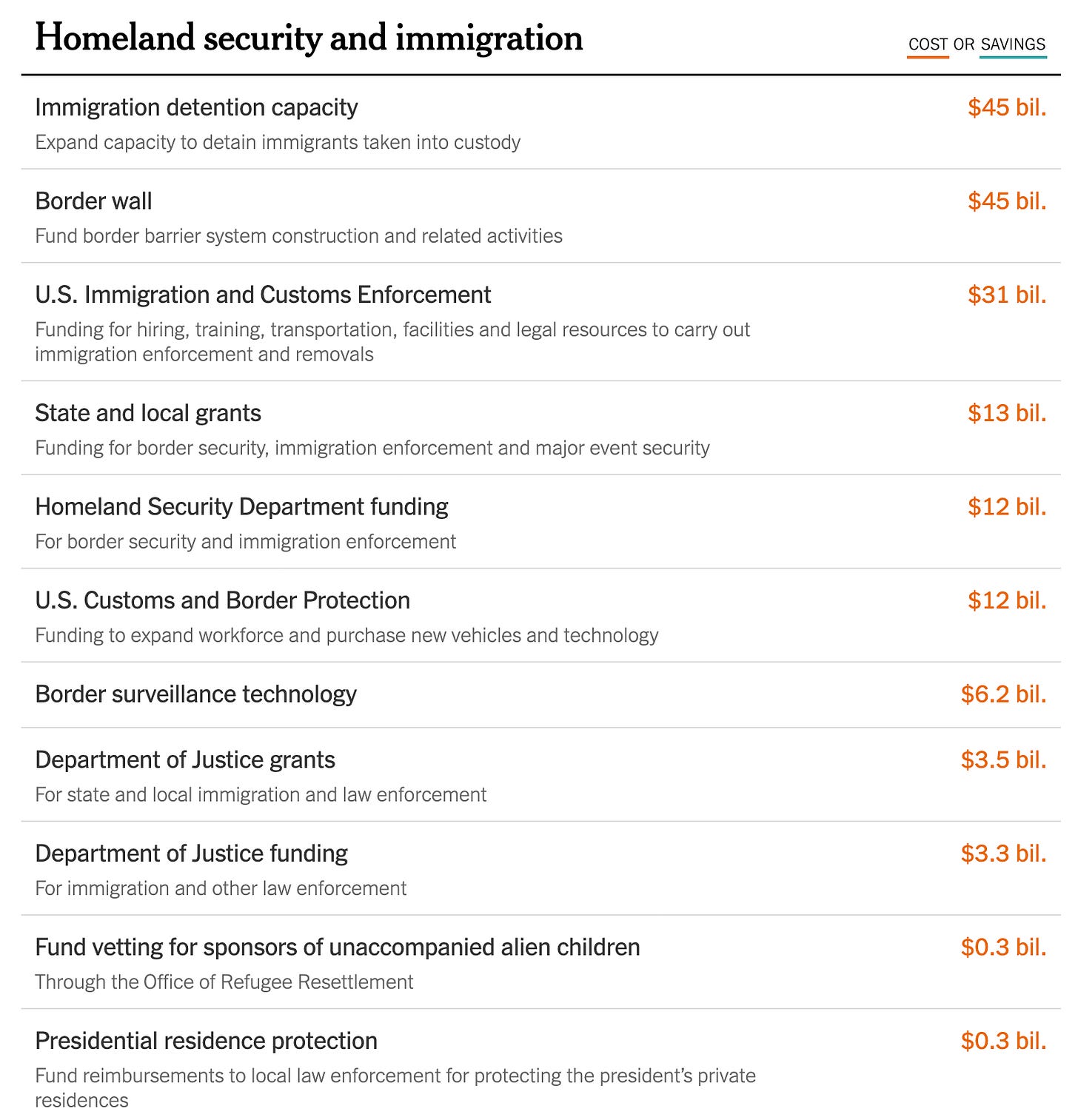In the post-New Deal era United States, things were looking up for the working class. The market crash of 1929 and the Great Depression that followed had brought forth the widespread acceptance that lasseiz-faire, free-market capitalism wasn’t working. Further, the dominance of Communism in the East meant that if the capitalist class wanted to preserve some level of the wealth and status-quo, they would need to make concessions. And so began an unprecendented era of wealth redistribution (in favor of workers), corporate regulation, jobs programs, and worker protections. It wasn’t perfect, of course; racial discrimination, for instance, was rampant in New Deal programs. But by and large, it was a smashing success for working people everywhere.
One man, University of Chicago economist Milton Friedman, saw all of this rising egalitarianism and was disgusted. He traced everything back to the New Deal, when so many countries, "including my own, got off on the wrong track.”1 In response, he set out on an economic counter-revolution to reshape the global economy in his image, to return to an image of “pure” capitalism and allow the market to regulate itself.
The problem was, New Deal policies, along with similar “developmentalist” policies in places like Latin America, were so successful and wildly popular that any semblance of a democratic return to lasseiz-faire economics was laughable. Knowing that the public would never accept the deeply unpopular policies of mass privatization, deregulation, and destruction of the social safety net, Friedman theorized that “only a crisis—actual or perceived—produces real change.”2 Once this crisis comes, Friedman wrote that it is crucial to act swiftly, to impose rapid and irreversible change before the crisis-racked society slipped back into the “tyranny of the status quo.”3 He called this strategy economic “shock treatment.”
Naomi Klein writes in her 2007 book The Shock Doctrine, “As Friedman understood, the atmosphere of large-scale crisis provided the necessary pretext to overrule the expressed wishes of voters and to hand the country over to economic “technocrats.””4 (Peter Thiel, is that you?)
From the second half of the 20th century to today, Friedman and his “Chicago Boys” would implement exactly this strategy. They would exploit (sometimes directly causing) events like Pinochet’s 1953 coup d’etat in Chile, the post-9/11 state of fear in the US, the Iraq War, Hurricane Katrina and other natural disasters, and the dissolution of the Soviet Union, in order to raid the public sphere for parts.
Klein writes, “Friedman's war on the "welfare state" and "big government" held out the promise of a new front of rapid riches—only this time, rather than conquering new territory, the state itself would be the new frontier, its public services and assets auctioned off for far less than they were worth.”
The disastrous results of Friedman’s neoliberal revolution speak for themselves. Southern Cone developmentalist countries where Friedman intervened, such as Chile, Uruguay, and Argentina, went from rising powers with state-centered economies that narrowed the gap of rich and poor and challenged Western hegemony, to economic colonies of the West with power and wealth consolidated in the hands of the few. After its full-throated embrace of neoliberalism, the US is experiencing a new Gilded Age of wealth inequality, rampant corruption, and economic instability. Russia has fallen into the hands of imperialist oligarchs hellbent on human rights violations and military aggression. Iraq and the vast array of other countries that the US and its allies have raided, exploited, and privatized have been left in shambles.
Trump’s second term as US President is marked by his own unique form of disaster capitalism, one in which he is the manufacturer of the chaos required for policies that will further consolidate wealth and power into the billionaire class while fucking over the rest of us. I’d like to highlight two of the key policies in the so-called “Big Beautiful Bill,” and how they will entrench power into the hands of private equity, multinational corporations, techno-fascists, and billionaires.
The Rural Hospital Private Equity Calamity
The $1 Trillion cut in Medicaid is a calamity to millions of low-income or disabled Americans on its own, not to mention the massive cuts to the SNAP program that millions more rely on, but just stating these facts doesn’t properly contextualize how insidious these cuts are. The vast majority of people who rely on these programs are from rural areas in the US. That means the hospitals that will be hit the hardest are those servicing these communities. These hospitals are usually rural and much of the time already struggling. Further cuts mean they will have to cut back on essential services, and many of them will go under or be absorbed by private equity.
As of 2024, at least 35% of for-profit hospitals were owned by private equity firms5 whose sole purpose is to extract as much short-term profit through financial engineering and executive bonuses while cutting costs at every corner, consequences be damned. Though understudied, research is unequivocal that private equity ownership is disastrous for patient outcomes. Harvard Medical School found that, “After a hospital was acquired by private equity, admitted Medicare patients had a 25 percent increase in hospital-acquired complications, compared with patients admitted before acquisition. Patients also had 27 percent more falls and 38 percent more bloodstream infections caused by central lines, which are temporary surgically inserted ports that allow easy intravenous access for patients receiving repeated drug infusions or other treatments.”6
All this is in keeping with Naomi Klein’s “disaster capitalism,” which she describes as “orchestrated raids on the public sphere in the wake of catastrophic events, combined with the treatment of disasters as exciting market opportunities.”
Of course, many hospitals were already privatized for profit in the first wave of economic shock therapy, which had similarly adverse impacts on low-income patients.7 But Trump’s new bill will massively accelerate and further destroy an already dysfunctional US healthcare system.
ICE, The Surveillance State, and the Prison-Industrial Complex
In the wake of 9/11, Klein writes that the Bush administration “immediately seized upon the fear generated by the attacks not only to launch the "War on Terror" but to ensure that it is an almost completely for-profit venture.” This phenomenon, what she calls the “disaster capitalism complex … is global war fought on every level by private companies whose involvement is paid for with public money, with the unending mandate of protecting the United States homeland in perpetuity while eliminating all "evil" abroad.”
The Bush administration outsourced everything from providing healthcare to soldiers to interrogating prisoners, to data mining information on US citizens. Over 22 months from 2003-2006, the Department of Homeland Security had issued more than 115,000 contracts for such functions to private corporations.
The over $300 billion set to be allocated to military and immigration spending will—besides making ICE the largest federal law enforcement agency in the country by a wide margin—largely be enjoyed by private corporations. Companies like Palantir, who built a $30 billion immigration surveillance platform8, or the private prison companies who house 90% of immigration detainees9, or the wide array of private companies set to profit off the $45 billion in funding for border wall expansions.
For context on what the $6.2 billion in “border surveillance technology” could be used for, here is an excerpt from Jai Dulani of MediaJustice.10
The bill provides $6.2 billion for border technology and screening, which includes the deployment of biometric technology. Information derived from facial recognition, iris scans, and DNA will be collected and fed into DHS’ centralized biometric repository, the Automated Biometric Identification System (IDENT). IDENT is accessed not only by ICE, but also the Department of Justice (DOJ) and state and local law enforcement. This data will be used for tracking, profiling, and policing, despite an abundance of documentation of the ways in which this technology does not work; it infamously misidentifies people, especially people of color, leading to wrongful arrests and detentions.
But the encroachment on privacy and civil liberties will not be limited to just immigrants; it is an excuse to expand the wider surveillance state. As tech journalist Brian Merchant points out, “you can bet with 100% certitude that those agencies will … purchase high tech ‘AI-powered’ systems for surveilling, monitoring, and tracking the nations’s population, in the name of ferreting out non-citizens.”11 Just last week, news broke that the government is consolidating its shiny new ‘ImmigrationOS’ surveillance system with social security data in order to “stop voter fraud.”12
The bill is a gift to the tech industry, one we’ve seen become all too cozy with DHS and the DoD. Recently, OpenAI won a $200M contract with the US Department of Defense to “develop prototype frontier AI capabilities to address critical national security challenges in both warfighting and enterprise domains.”13 Before that, Microsoft, Google, Oracle, and others created specialized AI software to assist in Israel’s genocide of Palestinian people.14 Companies like Anduril create arsenals of “killer robots” with autonomous decision making capabilities.15
These two issues are hardly the only disasters that the Big Bullshit Bill will engender. The cost of college will soar, clean energy projects will be abaondoned, children will lose healthcare, all so that we can pay for our precious military and tax cuts for the ultra-rich. In an economy already so thoroughly privatized, it was hard to believe that things could get much worse. Trump’s second term, first through DOGE and now through the Big Bullshit Bill, have proven that we’ve only just begun.
Milton Friedman and Rose Friedman, Two Lucky People
Milton Friedman, Capitalism and Freedom
Milton Friedman and Rose Friedman, Tyranny of the Status Quo
Naomi Klein, The Shock Doctrine: The Rise of Disaster Capitalism
Tech Won’t Save Us podcast





